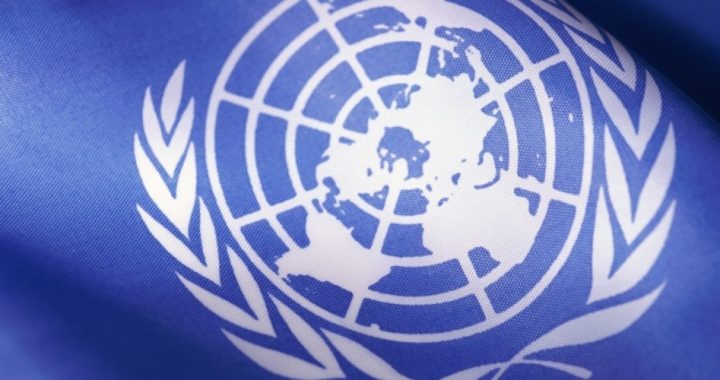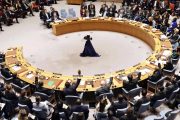
The UN Security Council on August 14 voted against a U.S. proposal to indefinitely extend an arms embargo against Iran. The embargo, put into effect in 2007, will now expire in mid-October. This will allow Iran to buy and sell conventional weapons without UN restrictions.
The United States and the Dominican Republic voted for the measure, and Russia and China voted against it. However, 11 of the 15 members of the Security Council abstained from voting: France, the United Kingdom, Belgium, Estonia, Germany, Indonesia, Niger, Saint Vincent and the Grenadines, South Africa, Tunisia, and Vietnam. Among the abstaining nations, Belgium, France, the United Kingdom, and Germany are NATO members.
The measure would have needed nine votes to be approved.
Secretary of State Michael Pompeo condemned the vote in a statement, writing, “The Security Council’s failure to act decisively in defense of international peace and security is inexcusable.”
“[The Council] rejected a reasonable resolution to extend the 13-year old arms embargo on Iran and paved the way for the world’s leading state sponsor of terrorism to buy and sell conventional weapons without specific UN restrictions in place for the first time in over a decade,” Pompeo added.
Majid Takht Ravanchi, Iran’s ambassador to the UN, was pleased with the vote. As he remarked on Twitter, “The result of the vote in #UNSC on arms embargo against Iran shows — once more — the US’ isolation.… Council’s message: NO to UNILATERALISM.”
The day after the Security Council vote, President Trump said at a news conference at his New Jersey golf club: “We’ll be doing a snapback. You’ll be watching it next week.”
By “snapback, “Trump meant that the administration might reimpose its own sanctions on Iran. Many European diplomats claim that such a move by the United States might threaten the 2015 nuclear deal between Iran and the P5+1 (the permanent members of the Security Council plus Germany) and the European Union. That agreement allowed many international sanctions against Iran to be lifted in exchange for curbs on Iran’s nuclear program. Trump withdrew the United States from the deal in 2018, calling the agreement “a horrible one-sided deal that should have never, ever been made.”
In a statement released after the vote, U.S. Ambassador to the UN Ambassador Kelly Craft wrote, “The United States has acted in good faith throughout this process, and made clear to all parties that failure was simply not an option. Under Resolution 2231, the United States has every right to initiate snapback of provisions of previous Security Council resolutions. In the coming days, the United States will follow through on that promise to stop at nothing to extend the arms embargo.”
Israeli Foreign Minister Gabi Ashkenazi reacted in an August 15 statement, saying, “The extremist regime in Iran doesn’t just finance terrorism: it takes an active part in terrorism through its branches around the world and uses it as a political tool.”
Image: Thinkstock
Warren Mass has served The New American since its launch in 1985 in several capacities, including marketing, editing, and writing. Since retiring from the staff several years ago, he has been a regular contributor to the magazine. Warren writes from Texas and can be reached at [email protected].
Related articles:
Congressman Introduces Bill to Get the U.S. Out of the UN
Bill to Get U.S. Out of UN Introduced in New Congress
Congressman Mike Rogers Introduces Bill to Get U.S. Out of UN
Getting US Out of the UN for Good!
Trump to UN: “We Reject the Ideology of Globalism”
After Brexit, U.S. Congressman Promotes #Amexit from UN
After Brexit, U.S. Should Dump UN, Says Sarah Palin
Congress Planning to Defund UN as Critics Seek Full Withdrawal
U.S. Independence Attacked as Never Before by UN Interdependence
Top CFR Globalist Warns UN Will Get “Hammered” by Trump
The United Nations: On the Brink of Becoming a World Government



